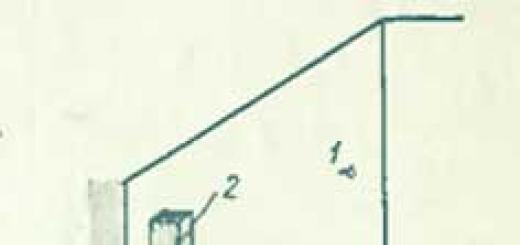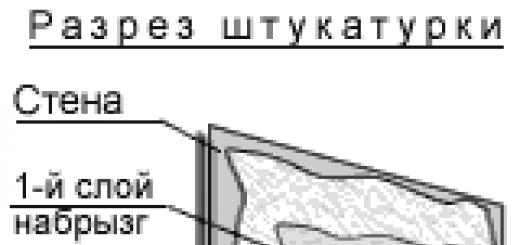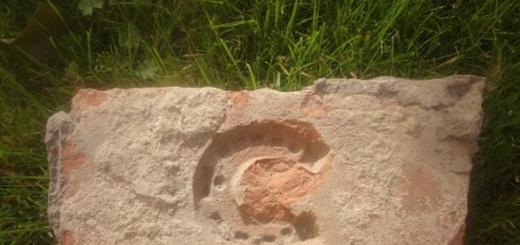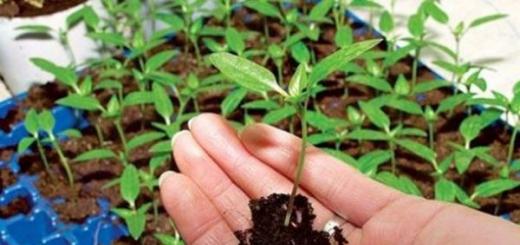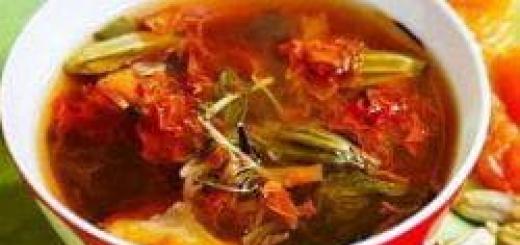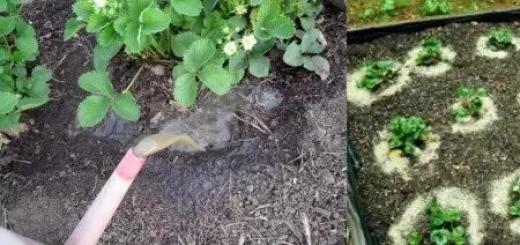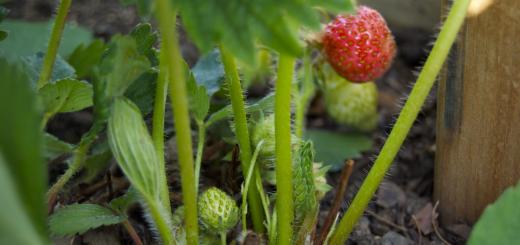A dream in which you light a stove foreshadows a trip to distant lands, which will involve the risk of losing your fiancé, who can easily be intercepted by your rivals during your absence.
Seeing a heating stove speaks of the close intertwining in your destiny of material interests and the desire for spiritual self-improvement. Warming up by the stove, having come from the extreme cold, means you will soon learn a bunch of news that has accumulated during your long absence.
Drying by the stove, getting wet in heavy rain - soon visit a sick person to whom you owe a lot in your life and career. A red-hot metal stove foretells disappointing information about the progress of your business partners.
A tiled stove means that you will experience a feeling of disappointment due to unfulfilled expectations. Getting burned on a stove means that you will be joyfully surprised to learn that you are owed a large sum of money.
A cooled stove foreshadows doing something useless. A beautiful tiled stove in an old mansion you dreamed of foreshadows severe punishment for a serious act.
Breaking an old stove in a dream means an early and too hasty marriage, which will lead to an equally hasty divorce. If in a dream you install a new stove in your home or country house, this means you will receive money, which will be less than you expected to receive.
Interpretation of dreams from the Dream Interpretation alphabeticallyDream Interpretation - Stove
Home stove in a dream: symbolizes the warmth of your soul.
Seeing in a dream how joyfully the stove is heated: foretells wonderful relationships with loved ones and friends.
A cooled stove: a sign of disappointment and sadness. Such a dream encourages you not to spare warmth for your loved ones, without whom your life will lose all meaning.
A dirty or broken stove: a harbinger of conflicts and quarrels. It seems that you are too unrestrained in your emotions, and negative feelings are poisoning your life.
The dream in which you burned yourself on a hot stove has the same meaning.
An industrial furnace in a dream: symbolizes feelings and emotions associated with your affairs and plans.
If it goes out: such a dream suggests that you have started some business and are not paying due attention to it.
Too much fire in the stove: a sign of emotional overstrain.
Be careful: you risk depleting your strength prematurely! Sparks flying from the furnace: symbolize disputes.
Interpretation of dreams fromA person spends half of his life in his home. Therefore, it is not surprising that so many signs are associated with the house, family affairs, and household items.
Door
You need to stick a large knife into the door frame with the tip, then the sorcerer will not be able to go into the house.
If the door suddenly creaks, it’s bad luck.
Buckthorn is considered a good amulet for the home against witchcraft and the evil eye. When hung on doors and windows, buckthorn destroys the machinations of sorcerers and demons.
Lock
To prevent evil spirits from entering the house and to avoid the evil eye, simple pins are inserted into the door lock with the sharp end facing out.
Curtain
A curtain breaks - a quarrel between friends.
Ash
Scattering ashes means a quarrel.
Icon
If something obscene happens in the house, the images are closed.
The icon fell - to death.
Painting
The painting fell - unfortunately.
Book
Books should be kept in a closed cabinet, otherwise your head will hurt.
Indoor flowers
Indoor flowers influence the family situation in different ways: ficus brings prosperity and family happiness; climbing plants (ivy, liana) lead to discord.
You should not keep a palm tree in the house - it will lead to great misfortune and illness.
A plant with narrow leaves with a white vein in the middle (chlorophytum) is popularly called “Man, get out of the house!” It provokes divorce.
Geranium protects the house from insects (moths, bedbugs). A geranium leaf placed in the ear relieves headaches and ear pain.
It is good to plant a juniper bush at home or store something made from juniper wood. This plant expels evil spirits from homes and protects against all kinds of magical slander.
If a flower pot breaks, there will be trouble.
The flowers in the house grow well, there is peace in the family: the flowers wither - the house is restless.
Bed
Do not put an arshin (or a ruler, a centimeter) on the bed - to the deceased.
Garlic hung at the head of the bed helps with headaches and evil spirits.
Shovel
You should not keep garden tools (shovel, hoe) in the house - a fire may occur
Soap
Soap in your bosom saves you from spoilage. Love talk is said about soap: “As soap clings to the body, so would a husband cling to his wife.”
Scissors
Scissors that fall so that the blades stick to the floor portend a quarrel. If a similar incident is repeated two or more times within a month, divorce or adultery is possible in the family.
Blanket
The blanket fell - the good guest is in a hurry.
Window
You cannot spit through the window, throw out garbage, or pour out slops - there is a guardian angel under the window.
At a wake, a towel or piece of fabric is hung out of the window, and a vessel with water is placed on the windowsill so that the soul of the deceased comes to wash.
Accidentally seeing a light in the window of your house is good luck.
Don't look out the window until dawn - you'll see something unclean.
Stove
If someone is carrying firewood for the stove and one log falls, there will be guests; the same if a firebrand falls out of the stove by itself. If a burning coal falls out, it means an angry guest.
Aspen firewood destroys stove soot.
You can't spit in the fire - blisters will appear on your tongue.
While bread is baking in the oven, do not sit on the oven - the bread will be bad.
A brick falling out of the oven is not good.
If the stove sweats, it means the housewife's tears.
The chimney is humming—someone’s soul is tormented.
If there is any rustling or ringing in the pipe, there will be a trial over a trifle.
Threshold
You cannot say hello, say goodbye, or pass anything across the threshold - to a quarrel or loss.
If a young guy is sitting on the doorstep, then not a single girl will marry him - so he will die a bachelor.
Candle
If a church candle burns unevenly in the house and leaves a lot of soot, the house is unclean.
You should not blow candles on the fire - pimples will appear on your tongue, you need to extinguish the candle after drooling on your fingers
A flame with soot is unlucky. When you light a candle in church, but it doesn’t burn for a long time, it leans or goes out - unfortunately.
Table
Don't put your keys on the table - it's not good. A hat and keys on the table mean a quarrel.
An inkwell and a knife also mean a quarrel.
If you brush the crumbs off the table with your hand, there will be no money.
You can't sit on the dining table - one of your parents will die. v Clock
The wall clock falls - to the death of the owner of the house. Stopping on their own means a change in life. After the death of the owner, the clock stops or needs to be stopped specifically. 8
The clock striking at the wrong time means trouble.
Fur coat
The fur coat fell - to a big quarrel in the family.
Lucky omens
Accidentally scattering a box of matches (by the way, you need to collect them one at a time and take only the “leg” of the match, and not the “head” - this way you will collect wealth for the house, pen by penny, ruble by ruble);
Spill wine during a toast - Fate will appreciate your generous gesture and will compensate for the spilled hundredfold (only, of course, you need to spill wine accidentally).
Unlucky omens
If someone goes into the house with an open umbrella, all that remains is to wait for misfortune;
Drop a raw egg (no matter where, on the floor or a soft chair). If it remains intact, failures will accompany you all day long.
Signs for happiness and good luck
Thread and needle
Buy a needle on Monday, and on Thursday stick it and thread into your blouse on your chest, and go ahead - everything will be fine.
If you sew and the thread gets tangled, you will live a long time.
Before the wedding, the bride and groom need to stick pins into their clothes so as not to jinx them.
A pin on clothes and a needle and thread above the door of the home protects against the evil eye.
Money
If you don’t recognize someone you know, he might be rich.
Take money with your left hand and give it with your right - it will always happen.
If, having sold the first thing of all intended for sale, you touch it with money, then you will sell the entire product easily.
At the table
He who eats stale bread swims well and is not afraid of lightning.
Feed the excess bread to the birds - to happiness and prosperity.
At the beginning and end of lunch, eating a piece of bread with salt is good luck.
An apple fell from the table - to a meeting with your lover.
A tea leaf floating in a glass means a gift.
If bread and salt are offered, the larger the piece you bite, the more luck you have.
If you sit between people with the same names, make a wish. It will come true.
Signs - rules
Sweep not towards the threshold, but from the threshold, otherwise you will sweep away your wealth.
A woman oversalts her food, which means she has fallen in love.
The broom should be held with the handle down - money will be found and the house will be protected from misfortunes.
Sweep the house with a wormwood broom - the unclean will not come in.
When moving to a new house, carry an old broom with you so that you can take the good brownie with you.
Do not stir coffee or tea in the cup of a partner or relative - you will stir up a quarrel.
If something breaks, don’t be upset, fortunately. At weddings, it is generally recommended to break dishes so that the spouses have a happy life.
Finding a horseshoe is good luck. Hang the one found above the door - to long happiness.
Never pour boiling water into an empty cup or glass (first pour tea, coffee, or at least sugar into it) - you will set yourself up for poverty.
Leaving scissors open means a quarrel.
Don't sit on the windowsill - you won't get married.
In Rus', the stove warms, feeds, illuminates, washes, dries, heals, predicts the weather and spells frost.
Russian stove. Photo: S. Yakovlev / Photobank “Lori”
Scientists estimate the age of the ancestor of the Russian stove to be many millennia. Man first placed fire under a clay vault back in the Stone Age. In Rus', adobe vaulted ovens were built in the 10th–11th centuries, and they acquired their familiar, traditional appearance by the 18th century.
When starting to build a hut, they first determined where to put the stove, and only after that did the layout of the remaining rooms. This is where the famous proverbs and sayings came from: “Dancing from the stove” and “The clever peasant set up a hut on the stove.” The stove was built on the flooring of a massive log house - the guardianship, and an empty space was left under it - the podpeche. All stove utensils were kept in the guardhouse: grips, pokers, shovels for baking bread. Chickens were placed in the oven in winter to keep them warm and lay eggs better.
Why did they put children in the Russian oven?

Washing in the oven. Engraving, 19th century

Historical interior of the home. Photo: Yu. Brykailo / photobank “Lori”

Mom teaches her daughter to remove the cast iron from the stove
Russian stoves were traditionally built in large sizes; the main household activities and family vacations took place around them. The stove not only heated and cooked - there was enough space in it to steam. Young girls, who were afraid of the “bathhouse evil spirits,” preferred to wash in stoves. Since ancient times, it was believed that stove steam healed many diseases. It was not in vain that they said: every disease will come off if you heat its seeds in the oven. Our ancestors raked out coals and ash from a heated stove, and then put sick children on shovels in the firebox to warm up. Stove ash in Rus' was an essential component of ointments and decoctions.
Interesting fact:
The stove and ash in the villages were used for washing. The woman put the laundry in a cast-iron pot filled with water, put a bag of ash in there and put it in the oven. After boiling with dark gray ash, the linen became not only snow-white, but also more durable.
How to find out the weather forecast at a Russian stove

Cast iron pots in the hearth of a Russian stove. Photo: N. Korol / photobank “Lori”

Russian stove. Photo: V. Salomatnikov / photobank “Lori”

Smoke from the chimney. Photo: A. Matveychuk / photobank “Lori”
Villagers knew how to predict the weather using their stoves. There was a whole set of folk signs, according to which peasants noticed various details and then interpreted their meaning.
If the wood in the stove burns with a bang, there will be frost, and if it burns with a humming noise, expect a snowstorm.
The firewood burns sluggishly or goes out - a thaw will come in the coming days.
The wood in the stove flares up well and burns with a slight crackle, and the smoke from the chimney rises - a sure sign of a sunny and windless day.
The smoke bends like a rocker and spreads along the ground - confirmation of the impending bad weather.
How they conjured frost on the stove

Russian stove. Photo: S. Tarasov / photobank “Lori”

Living room with a stove in a Russian hut. House of peasant Sergeev. Kizhi Island. Photo: O. Lipunova / photobank “Lori”

A stove in a house in the Russian North. Elizarov's house, Kizhi island. Photo: Igor Lijashkov / photobank “Lori”
The real test for the stoves was the severe frosts of Mother Winter - St. Nicholas, Christmas, Vasilyevsky or Epiphany. At this time, it became clear whether the stove held heat for long enough and whether the prepared firewood produced much heat. The chimney also played an equally important role. The warmth and cleanliness of the air in the house depended on whether the valves and dampers were open or closed. If you open the damper, the fumes and smoke will disappear; if you close it, you will retain the heat longer.
Typically, stove walls are 25–40 centimeters thick, and this creates good heat accumulation and a thermos effect. The advantage of a real Russian stove is the uniform distribution of heat. Even in the most severe frost, it can keep the hut warm throughout the day with just one fire.
To protect winter crops and fruit trees from freezing with the help of an open chimney or a window, peasants traditionally performed a frost spell.
“The old man or the eldest man in the family climbed onto the stove with a wooden spoon filled with jelly, stuck his head through the portico window and said: “Frost! Freezing! Come eat some jelly. Freezing! Freezing! Don’t hit our oats, flax and hemp into the ground.” When, having closed the window, the old man began to get off the stove, the eldest woman in the house suddenly poured water on him so that the curse would freeze on his lips. It was believed that after such a treat the frost became kind and went away.”
Gennady Fedotov in the book “Russian Stove”
Great-grandmother of the multicooker
A traditional Russian oven allows you to cook almost anything. Unlike modern ovens, it allows you to give dishes a special aroma and national identity. You can cook on the stove that is lit in the morning all day long.
Pies made from dough that has risen overnight with fruit or vegetable filling become plump, fluffy and incredibly tasty from the heat of the oven. This is where the Russian proverb comes from: “The hut is red with its corners, and the oven with its pies.”
Sweep, sweep, but don’t take it out of the hut, but scoop it up under the bench and put it in the oven so that it blows away with smoke
We continue the theme of stove folklore. This time we'll talk about signs and superstitions
A pot of porridge cracked in the oven - not good. A pot of porridge is one of the symbols of well-being in the home. The respect for the pot in the oven is further enhanced by the fact that it is round and hot (echoes of the deification of the Sun). With the help of a stove pot (like a broom) they transferred the brownie from the old home to the new one. The stove pot was often used in fortune telling, to communicate with the souls of the dead.
The bread in the oven splits in two - to the departure of one of the household members. This refers to the separation of part of a loaf from the whole. Bread is a symbol of family unity: about those who find themselves outside the family, they say: “a cut off slice.” And based on the association “splitting a loaf - splitting a family,” they make the assumption that someone may leave.
Porridge coming out of the pot towards the oven exit is unlucky, but if it comes out towards the far wall it means abundance.. Despite the fact that this belief contains three symbols at once (porridge, a pot, an oven), its essence is quite simple, because it is based on an external comparison: to the exit from the oven means to the exit from the house, and to the wall means there will be more in the house, there will be abundance. On a mystical level, this is interpreted as the actions of the spirits living in the oven: they push out food or keep it for themselves, thereby expressing favor.
Don't clean the house when the bread is in the oven - there will be no prosperity. While baking bread, it was forbidden to leave the house or even make noise. All this is due to the fact that bread was treated as a living (spiritualized) being. If you leave the house, bread will be offended that he was left alone. And the noise can scare him. As for cleaning, it's just an insult to bread! At the everyday level, the belief is interpreted as useful and rational: you don’t need to do several things at once - none of them will succeed. Especially something as complex as baking bread, which requires the constant presence of the housewife at the oven.
A brick falls out of the oven - don't expect anything good. This is due to the attitude towards the stove as one of the most important symbols of the house. The stove in the minds of the people is not only warmth and hot food, but also a place through which the house is connected with the outside world (we remember stories about witches flying out of the chimney). Previously, people also slept on the stove, so dreams and the image of the stove were also combined. A fallen brick breaks the integrity of the stove as a boundary between the house and the open world. Through the resulting hole, evil spirits, the soul of the deceased, illness, damage, etc. can enter the house. Some beliefs connect the falling brick with the penetration of the mythical fiery serpent into the house. It seems that there is also a hidden everyday meaning in this, since we are talking about the increasing possibility of a fire.
There was a hum in the chimney - the soul of the dead man was tormented. It was believed that if you close the stove damper, the connection between the house and the outside world stops. This means that the soul that wanted to visit the house remained in the chimney and is tormented there, howling. In this case, you need to pray for the dead.
The stove was closed with a damper when someone went on the road. This was done so that conversations at home about him would not go down the drain and would not be heard by “strangers.”
The house is warm, but the cat is lying on the stove - it might be frosty. If a cat hides its head under its belly, it means frost. If in the summer a cat sleeps in a curl, it means close to bad weather. - Numerous signs associated with a cat and foreshadowing this or that weather are based on the fact that the cat is very sensitive to weather changes and can anticipate them. The craving for warmth before the cold snap in cats remained even after the disappearance of the stoves. If you watch carefully, you will see that before the frost the cat lies on the steam heating radiator: it seems to be gaining heat for the cold period. This means that it makes sense to take into account folk signs in which a cause-and-effect relationship is clearly visible.
To bewitch a guy, you need to take the stove door, pour grains on it and feed the rooster. This is due to the attraction of magical symbols of the house: the rooster symbolizes fertility (its masculinity), scares away evil spirits; the stove is a symbol of the hearth; grains are a symbol of life and prosperity. While feeding the rooster, the girl says: “Just as the damper keeps its mouth, so should the rooster stay at home, and my fiancé keep me.” There are a great many such bewitchments, conspiracies, and fortune telling.
The matchmaker warms his hands by the stove before starting wedding negotiations - otherwise there will be no sense in the agreement. The sign goes back to the belief that the souls of the dead live in the oven. Warming his hands, the matchmaker seems to welcome them. Although, if you think about it, it really doesn’t bother a person who comes in from the cold (and there have been reservations when it’s late autumn outside) to warm up - then things will go better. Moreover, the matchmaker had to stand all the time; she was forbidden to sit. The matchmaker was usually greeted with the refrain “Oh, Lada, Lada!”, which called upon the ancient Russian goddess Lada, the patroness of love and marriage, to help. Since then they say: “get along with the wedding”, “get along in the family”.
A newly acquired cat should be poked with its muzzle into the stove damper. In order for the cat to know the house of the new owner, you should wash the paws of the cat brought into the house on the stove damper, while saying: “Just as the damper does not leave the stove, so do not leave the house.”
During the marriage, the newlyweds had to walk around the stove three times, so the groom thanked the hearth for giving him his wife and took her to his, asking the fire and ancestors for health and children. When the wedding was over, they threw an empty pot into the oven and said, “So many shards, so many young guys.” This is where the custom of breaking glasses came from.
The stove was a symbol of peace and quiet, you couldn’t swear or express yourself in front of her. Now we say: “Quiet: there are children or ladies here”; and then they said: “The stove is in the house!” If you were allowed into the house and settled in the bunk, then you became a friend and practically a member of the family: no harm was expected from you and no harm was planned for you
When you return from the funeral, touch the stove with your hand - so that there will be no new deceased in the house for a long time. This sign is due to the fact that the stove is directly related to the element of Fire. Old people say that if you hold onto the stove after the cemetery, you will burn all the bad omens at the root. Therefore, it is imperative that after you return from the funeral, if you don’t hold on to the stove, you never know, maybe there is no stove, then be sure to light a candle. A candle is also a fire that can burn away all negative energies
Unfortunately, not all signs could be explained and interpreted.
You cannot sit with your back to the stove, otherwise the brownie will be offended.
If someone has “cats scratching” at their soul or their conscience is not clear, you just need to warm your hands by the stove.
If one of the household left his nest for a long time, the stove was closed with a damper so that he would have luck on the way.
While bread is baking in the oven, do not sit on the oven - the bread will be bad
If the stove sweats - to the tears of the housewife
The firewood in the stove fell apart - to the guests.
Scattering ashes - to a quarrel
The gruel in the oven turns red - in summer it means rain, in winter it means snow
Red fire in the stove means frost; white - to the thaw.
Putting the stove on the new moon will make it warmer.
The fire in the stove went out - an unexpected guest.
Burnt coal on a splinter crumbles - to frost
If someone is carrying firewood for the stove and one log falls, there will be guests; the same if a firebrand falls out of the stove by itself. If a burning coal falls out, it means an angry guest.
If there is any rustling or ringing in the pipe, there will be a trial over a trifle.
Putting firewood into the stove with the points forward means a quarrel. Peasants in Rus' kept firewood after a fire as a means of protection against re-ignition of the home.
When the bread is baking, do not sweep the hut: you will sweep it with ergot.



